What’s the most overlooked part of your car? Yep, it’s your car brakes.
You enjoy taking your car to the carwash and driving a sparkling car. You have a little sticker on your windshield, reminding you of the need for oil changes. But car brakes? When was the last time you gave them any thought at all?
Yet they aren’t something you can ignore.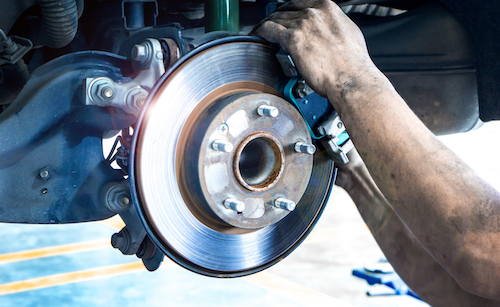
What brakes do
Brakes don’t stop the car. Instead, brakes stop the wheels from turning, which in turn slows down the car and brings it to a stop.
Most modern cars use disc brakes for the stopping process. Disc brakes consist of:
- Brake discs
- Calipers
- Brake pads
- Brake lines
- Brake master cylinder
Every wheel has a plate-like disc attached to it. Also called a rotor, this plate is squeezed by the brake pads within the caliper every time you want to slow down.
Brake pads have two layers: a metal backing and a high-friction material molded onto the backing plate with heat and pressure. It’s also coated with an adhesive that helps the brake pad and caliper withstand high temperatures and excessive heat buildup.
What are brake pads made out of?
If you head back in time, the original brake pads that grew in popularity during the 1950s and 1960s were made from asbestos. It was thought to be a great material because of its heat-resistance and durability qualities. However, as health ramifications were discovered, auto manufacturers looked for alternatives to make a safer product.
The organic brake pad was created from a variety of materials and fibers and mixed together with binding resins to hold them together. You might find glass, rubber, carbon, Kevlar, and other fibers mixed in. Because they are inexpensive to create, the majority of new cars are still installed with organic brake pads today. They’re easy on the brake rotors, suitable for all driving environments, and don’t require a lot of heat to generate good friction. That makes them the perfect choice in most conditions.
The metallic brake pads are manufactured with steel, iron, copper, or other metals, added to friction modifiers and fillers to create the final product. Metallic brake pads are thought to be one of the most versatile on the marketplace, being more durable and longer lasting than the organic composition.
You’ll find better braking performance, a wider operating range in heat and cold conditions, a firmer feel in driving conditions, and more resistant in the long term. But because the brake pad is created from metal, it is noisier than other brake choices, and will produce more brake dust.
The newest brake pad on the market is made from ceramic. Ceramic pads are created from a dense ceramic material – think pottery – with copper fibers added during production. They are quieter than metallic brake pads, and produce a finer brake dust which won’t stick to wheels. And because it has the longest lifespan of any brake pad, they can be a great choice if you’re investing in your car for the long term.
What causes brake pads to wear
The biggest enemy to a brake pad is heat. As the brake pad moves against the brake disc, friction occurs, and heat is produced. To remove this heat, a car is designed with several systems to prevent buildup, especially in the front brakes where more action occurs. The brake disc is ventilated to allow cooler air to be pumped in and spread to the outer edges of the disc. The more hot air is kept away from the center, the less likely the disc will “fade.”
Fading is when brakes overheat. If car brakes are continually used while overheated, brake fluid can impact the calipers, which reduces the ability to brake. You may notice this if:
You’ve had to depress the brake pedal farther to the floor
You’ve pushed the brake pedal all the way to the floor without any braking
It takes you more distance to come to a stop
You smell a burning odor during the braking process
Your brakes start smoking or catch fire
This is where higher performing brake pads come into play. While an organic brake pad will provide excellent performance in standard conditions, only you can decide how you drive. If you need better performance, talk with one of our technicians about which option is best for you.
Keep your brake system happy
While it might be a glamorous purchase, brake pads are vitally important to your car’s safety and performance. Of course, so is regular maintenance.
Like an oil change, your brake fluid should be changed regularly too. Brake fluid attracts moisture. And moisture isn’t a good thing for your car’s braking performance.
Moisture reduces brake fluid’s boiling point, which makes it easier for brakes to overheat, especially in summer conditions.
Boiling brake fluid also enhances fading, which means your brakes can fail at the most inopportune time, like driving down long hills. That can be a big problem if you’re coming home after a fun-filled weekend in the mountains.
Moisture also corrodes metal. And since your brake pads are created from metal, it can wear down or even cause your brake pads to cease long before you anticipate.
Your best bet is to replace your brake fluid on a regular basis, according to your car’s manufacturer recommendations, or every couple of years. It’s the perfect way to keep your car happy and running well no matter what type of driving you do.
While brakes may not be the sexiest piece of equipment on your vehicle, they are one of the most important. If you want to keep a well-maintained car ready for all sorts of driving conditions, the best place to start is at the bottom – with your car brakes. Well-maintained car brakes will have better braking capability and keep you and your car’s occupants safe and secure.
And that can be a very good thing, whether you’re driving home from a day of skiing, or heading to work in the middle of the summer. Make the right choice, and your car brakes will be happy for the life of your car.

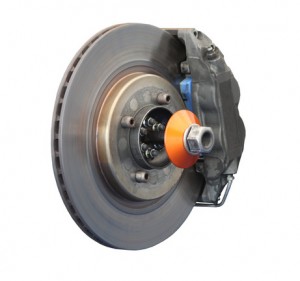 Disc brakes are called disc brakes because of the big metal disc or rotor that spins with the wheel. The brake pads rub against the rotor to slow the vehicle. In technical terms, the motion energy of the moving vehicle is transferred into heat energy by the brakes. The job of the rotor is to absorb that heat and dissipate it into the atmosphere. To do that effectively, the rotor needs a certain amount of mass ( measured by the thickness of the rotor) and a good surface to mate with the brake pads. Let’s talk about those two things.
Disc brakes are called disc brakes because of the big metal disc or rotor that spins with the wheel. The brake pads rub against the rotor to slow the vehicle. In technical terms, the motion energy of the moving vehicle is transferred into heat energy by the brakes. The job of the rotor is to absorb that heat and dissipate it into the atmosphere. To do that effectively, the rotor needs a certain amount of mass ( measured by the thickness of the rotor) and a good surface to mate with the brake pads. Let’s talk about those two things.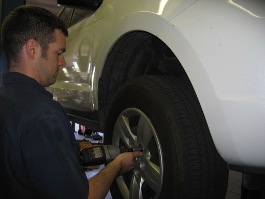 You can make the tires on your vehicle last longer with a regular tire rotation and balancing.
You can make the tires on your vehicle last longer with a regular tire rotation and balancing. Have you ever stopped to think how amazing it is that auto makers have been able to consistently build more powerful engines in vehicles that get better fuel economy while at the same time meeting increasing environmental standards. One of the little miracles that helps make this happen is the Exhaust Gas Recirculation Valve or EGR Valve.
Have you ever stopped to think how amazing it is that auto makers have been able to consistently build more powerful engines in vehicles that get better fuel economy while at the same time meeting increasing environmental standards. One of the little miracles that helps make this happen is the Exhaust Gas Recirculation Valve or EGR Valve.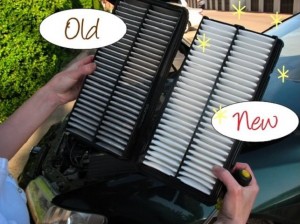 Today we want to talk about your engine air filter. That’s the filter that cleans the air before it’s burned in your engine. Many people wonder how often they should change their engine air filter. The simple answer is ” when it’s dirty”. That’s a function of how much air has passed through the filter, so your vehicle manufacturer will recommend a mileage interval for replacing the air filter. But it’s not hard to imagine that how dirty the air is will greatly affect how quickly the filter gets filled.
Today we want to talk about your engine air filter. That’s the filter that cleans the air before it’s burned in your engine. Many people wonder how often they should change their engine air filter. The simple answer is ” when it’s dirty”. That’s a function of how much air has passed through the filter, so your vehicle manufacturer will recommend a mileage interval for replacing the air filter. But it’s not hard to imagine that how dirty the air is will greatly affect how quickly the filter gets filled. Your suspension system keeps your car up off the road. From there, it’s responsible for a smooth and comfortable ride wherever you choose to drive. It also keeps your wheels firmly planted over bumps and through curves.
Your suspension system keeps your car up off the road. From there, it’s responsible for a smooth and comfortable ride wherever you choose to drive. It also keeps your wheels firmly planted over bumps and through curves. What do you think is the most stolen item from vehicles?
What do you think is the most stolen item from vehicles?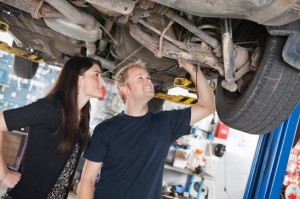 You wouldn’t walk into a different dentist’s office every time you needed your teeth cleaned. You wouldn’t pick someone at random every time you needed your hair cut, would you? And on tax day, would you trust your taxes to a stranger?
You wouldn’t walk into a different dentist’s office every time you needed your teeth cleaned. You wouldn’t pick someone at random every time you needed your hair cut, would you? And on tax day, would you trust your taxes to a stranger?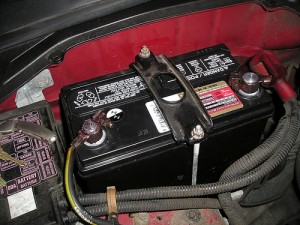 Car batteries wear out just like any other battery and need to be replaced. There are a couple of things vehicle owners should know when looking for a battery replacement: one is cold cranking amps and the other is reserve capacity.
Car batteries wear out just like any other battery and need to be replaced. There are a couple of things vehicle owners should know when looking for a battery replacement: one is cold cranking amps and the other is reserve capacity. Question: I need new tires, but how do I know which tires to select?
Question: I need new tires, but how do I know which tires to select?